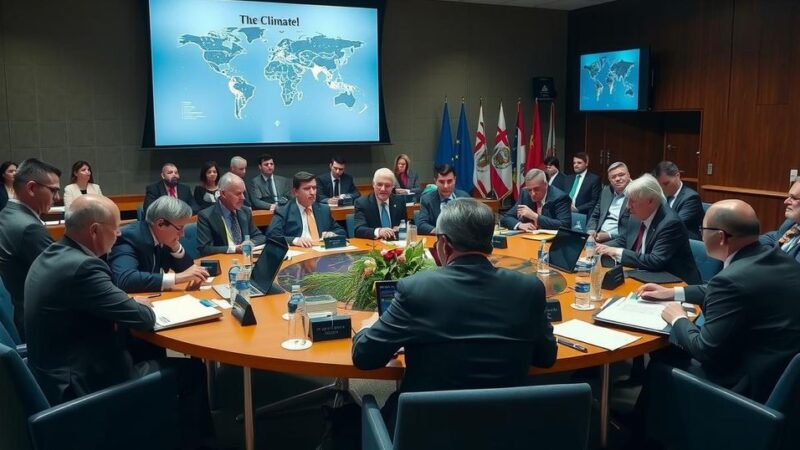A recent analysis by World Weather Attribution indicates that climate change has increased rainfall intensity by about 10% in Nepal, contributing to the severe floods in late September that resulted in over 240 deaths and significant damage. The report underscores the urgent need for better urban planning in vulnerable flood-prone areas and highlights the broader implications of climate change for Asian countries experiencing similar extreme weather events.
According to a rapid analysis from a team of esteemed scientists, the devastating floods that occurred in Nepal in late September, which resulted in over 240 casualties, were exacerbated by human-induced climate change increasing rainfall intensity by approximately 10%. This assessment was provided by World Weather Attribution (WWA), a collaborative group focused on evaluating climate change’s influence on extreme weather events. The floods, triggered by three consecutive days of severe rainfall starting on September 26, witnessed record-breaking precipitation levels in central and eastern Nepal, including over 320 mm on September 28, leading to immense destruction and loss of life. The analysis emphasizes the imperative for Nepal to regulate development in low-lying, flood-prone areas to protect communities from future disasters. Kathmandu, the nation’s capital and one of the regions most affected, experienced unprecedented flooding, leading to substantial damage valued in billions of rupees. Witness accounts note that the magnitude of flooding had never been witnessed before. WWA’s findings highlight how hasty urban expansion has intensified the flood’s impacts, particularly as Kathmandu is situated in a geographically vulnerable bowl-shaped valley with significant development around the Bagmati river. The study calls for enhanced early warning systems and decisive action plans to mitigate the risk of future flooding. Conducted by a diverse team of 20 researchers from various prominent institutions in Nepal, India, Sweden, the United States, and the United Kingdom, the study showcases the crucial link between climate change and the rising frequency and severity of rainfall events. Mariam Zachariah, a researcher at the Centre for Environmental Policy, Imperial College London, articulated, “If the atmosphere wasn’t overloaded with fossil fuel emissions, these floods would have been less intense, less destructive and less deadly.” The ongoing climatic changes pose substantial risks to Asian countries, as highlighted by researchers, signaling that with each fraction of a degree of warming, the atmosphere’s moisture capacity increases, thereby enhancing the potential for more destructive floods.
The recent analysis from World Weather Attribution (WWA) regarding the Nepal floods underscores the critical interplay between climate change and extreme weather events. It illuminates how anthropogenic factors exacerbate natural disasters, particularly in regions like Nepal that are vulnerable due to rapid urbanization and geographical risks. The substantial rainfall recorded in September not only led to tragedies in terms of loss of life but also highlighted systemic vulnerabilities in urban planning and disaster preparedness in the Kathmandu valley. The findings from the WWA serve as a stark reminder of the urgent need to address climate change proactively and implement environmentally sustainable practices to safeguard communities.
In summary, the WWA analysis reveals that human-induced climate change has intensified rainfall in Nepal, leading to unprecedented flooding and significant loss of life. The report advocates for immediate action to limit urban development in vulnerable areas, enhance warning systems, and mitigate future risks. The findings emphasize that without substantial reductions in fossil fuel reliance, the severity of such climate-related disasters will continue to escalate, necessitating urgent strategic changes at the local and global levels.
Original Source: www.theweek.in






